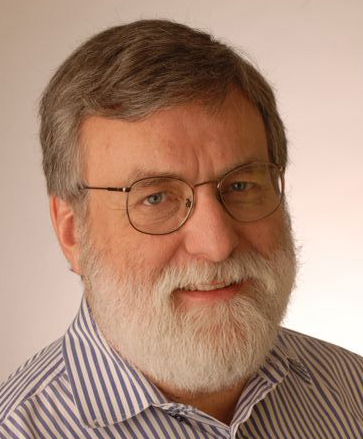At a glance



Von Stackelberg’s work on the use of timelines and other methods for predicting future trends and events has been recognized as leading edge by futurists and those involved in strategic issues management.
According to von Stackelberg, “The work that I do includes the identification and analysis of economic, social, political, and technological trends. That means looking anywhere from five to 50 years into the future.
“From a practical perspective, it means identifying how things are going to change and their impact on business. My work has included the development of a set of timelines and forecasts since 1994.
“For example, work that I am currently involved in is looking at how biotechnology and nanotechnology will evolve between now and 2030. Key questions I focus on include:
- How rapidly will the technology change?
- What are the things that will encourage or limit the commercialization of the technology?
- How can a business take advantage of the opportunities presented by changing technology?
- How does technological change threaten the economic viability of a business?
- What are the social implications of the technology?”
“Von Stackelberg's development of the strategy of 'timelining'--the visual representation of the events of history by 'kind' in parallel and correlated tiers--represents a major, qualitative breakthrough in providing a more systematic understanding of the past, explanation of the present, and grounded forecasting of the future," says Reed D. Riner, professor of anthropology at Northern Arizona University.
The European Futurists Club Lucerne is developing an interdisciplinary tipping point model capable of recognizing upcoming tipping points (points when sudden technological, social, economic, or political changes occur) with a significant probability and position them on a time line. The model should contain various early recognition and/or early warning indicators that allow the monitoring of the proximity of a tipping point.
Specifically, the European Futurists Conference's goal will be to:
- advance the quality of futures studies in Europe;
- promote sharing of future-oriented knowledge among futurists, analysts and decision makers in Europe;
- contribute to the understanding of various possible futures and their global impact on European business, politics and society;
- encourage the public dialogue about possible futures;
- support European businesses, politics and societies in creating their preferred future.
The European Futurists Club likens its goals to the path meteorologists have followed, getting better at making more accurate, geographically differentiated, and above all, more long-term weather forecasts.
But what of futures studies it asks. Futurists always emphasize that exact predictions are impossible. Instead they diagnose the present and try to find patterns that they call trends or megatrends. And they collect signals that may indicate a change or confirm trends. Trend forecasting will remain the group’s main business, but with a little practice in unconventional thinking, it hopes to describe developments and their consequences for many trends or megatrends. However, what would certainly be even more important to know for decision makers is whether and why a development is no longer a trend but will fundamentally change its direction and/or momentum. It’s just as important to know when something will turn up that is new, unexpected and that could lead to economic or social paradigm shifts. These developments are known as discontinuities or wild cards, and it is the most difficult and the most important task of those in charge to prepare for them. But to prepare one would have to know at least the outlines of those game-changers and wild cards. One should also be able to place them on a timeline - at least roughly. It is necessary for futures researchers to face this challenge head-on.
The conference will seek rational prediction models, theories, and approaches. The goal of the workshop will be to explore the possibilities of coming up with a theory of tipping points by combining various different approaches.
The group’s long-term goal is an international research institute for tipping points, using the European Futurists Conference Lucerne for the development of the tipping point model. This broad conference is a suitable forum to explore the idea of the research institute and discuss applicable areas for further exploration.
The European Futurists Conference Lucerne aims to be the foremost annual gathering of futurists, analysts, and decision makers with long-term perspectives working with scientific methods for futures studies in Europe. It is dedicated to the professional needs of futurists and long-term decision makers in Europe.
Von Stackelberg is a futurist, strategic thinker, and writer with almost two decades of experience in technology foresight and assessment, scenario development, and strategic management of technological innovation. His work focuses on the practical applications of foresight to business and organizational innovation and strategy development. He is a full-time lecturer at the State University of New York (SUNY) College of Technology in Alfred, New York. The classes he teaches include strategic management, systems thinking, and management of technological innovation in the Business Department of the School of Management and Engineering Technology.
He has also worked as a business consultant for more than 30 years, focusing on technology foresight and strategic management of technological innovation for the past two decades. He has worked on a wide range of futures-related projects for clients that include Nokia, NASA, Lockheed-Martin, Honda R&D North America, Shell, Texaco, Nissan, and Hasbro.
Von Stackelberg has a master of science in studies of the future from the University of Houston – Clear Lake, with a major focus on methodologies for technology forecasting and assessment; analysis of how technological change impacts economic, social, political, and environmental systems; and facilitating technological change within organizations. He will complete a master of science in information design & technology from the State University of New York Institute of Technology (SUNY IT) in August.
